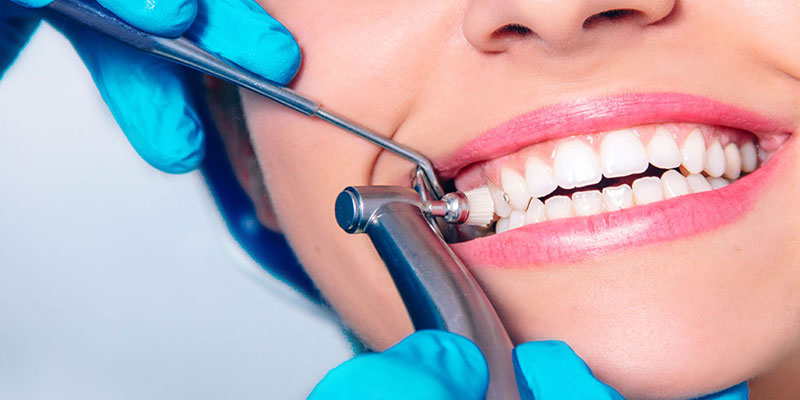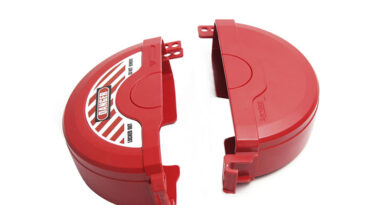Why Teeth Cleaning and Polishing Should Be Part of Your Regular Dental Care Routine
A healthy smile is more than just a cosmetic asset – it’s a key indicator of overall health. While brushing and flossing daily are essential for keeping your teeth clean, they are not enough on their own to ensure complete oral health. This is where professional teeth cleaning and polishing come in. These procedures, carried out by a dental hygienist or dentist, play a crucial role in maintaining oral hygiene and preventing various dental issues. Here’s why teeth cleaning and polishing should be a regular part of your dental care routine.
What Are Teeth Cleaning and Polishing?
Before we dive into the reasons why you should make these procedures part of your routine, let’s first understand what teeth cleaning and polishing involve:
- Teeth Cleaning: Professional teeth cleaning (also known as dental prophylaxis) is the process of removing plaque, tartar, and stains from the surface of your teeth. Plaque is a sticky film of bacteria that forms on your teeth, and when it hardens, it turns into tartar (calculus), which can only be removed by a professional.
- Teeth Polishing: This process follows cleaning and involves smoothing the surfaces of the teeth to remove any residual plaque, tartar, and surface stains. The goal of polishing is to leave the teeth shiny and smooth, preventing bacteria from easily adhering to the surfaces.
The Benefits of Regular Teeth Cleaning and Polishing
- Prevents Gum Disease
Gum disease, which can lead to tooth loss if left untreated, often begins with the buildup of plaque and tartar along the gum line. Plaque harbors bacteria, and if not removed, it irritates the gums, causing inflammation and bleeding – a condition known as gingivitis. If gingivitis is left untreated, it can progress into more serious gum disease, such as periodontitis.
Regular teeth cleaning removes plaque and tartar, reducing the risk of gum disease and helping you maintain healthy gums. Professional cleaning also removes the bacteria that can cause bad breath and gum infections.
- Reduces the Risk of Cavities
Plaque and tartar buildup create an environment where bacteria thrive. These bacteria produce acids that attack tooth enamel, the protective outer layer of your teeth. Over time, this acid erodes the enamel and can lead to cavities. The removal of plaque and tartar during cleaning is essential in preventing cavities, as it stops the process before it damages the enamel.
Teeth polishing also smooths the surface of your teeth, making it harder for plaque and food particles to stick to them, which further protects against cavities.
- Improves Overall Health
Oral health is closely linked to overall health, and poor oral hygiene can contribute to a number of systemic health issues, such as heart disease, diabetes, and respiratory infections. Regular teeth cleaning and polishing help to keep bacteria in your mouth in check, preventing them from entering the bloodstream and causing potential complications.
For instance, studies have shown that gum disease can increase the risk of heart disease, as the bacteria in the mouth can enter the bloodstream and cause inflammation in blood vessels. By removing plaque and bacteria, regular cleanings contribute to better overall health.
- Brightens Your Smile
Stains from food, drinks like coffee or tea, and tobacco use can dull the appearance of your teeth. While regular brushing can help keep your teeth clean, it doesn’t remove all stains, especially those that have penetrated the enamel. Professional teeth polishing removes surface stains, giving your teeth a brighter, more polished appearance.
The result? A whiter, more youthful smile that boosts your confidence and leaves a lasting impression. Plus, teeth polishing smooths the surface of your teeth, making them more resistant to future staining.
- Freshens Your Breath
Bad breath, or halitosis, is often caused by bacteria that build up on your teeth and gums. These bacteria produce sulfur compounds that lead to an unpleasant odor. Teeth cleaning and polishing remove bacteria and food particles, helping to eliminate bad breath and leaving your mouth feeling fresh.
By regularly cleaning and polishing your teeth, you prevent the buildup of odor-causing bacteria, ensuring that your breath stays fresh throughout the day.
- Prevents Tooth Loss
Tooth loss is often the result of untreated gum disease, cavities, or damage from tartar buildup. Regular cleaning helps prevent these issues by addressing plaque and tartar before they cause irreversible damage to the teeth and gums. By preventing gum disease and cavities, teeth cleaning and polishing lower the risk of tooth loss and save you from the need for more costly dental treatments like implants or dentures.
- Improves Overall Appearance of Teeth
Even if you don’t have cavities or gum disease, tartar and plaque buildup can affect the appearance of your teeth. A yellowish or dull appearance from tartar and stains can make your smile look less appealing. Regular professional cleaning ensures that your teeth remain shiny, bright, and healthy-looking, which is an important part of maintaining good oral aesthetics.
- Helps You Maintain Your Dental Work
If you have dental restorations such as fillings, crowns, or bridges, regular teeth cleaning is essential for ensuring their longevity and effectiveness. Cleaning helps to prevent plaque buildup around these dental appliances, which can lead to decay or gum disease around the restoration. Professional cleaning helps keep these restorations in top condition.
- Encourages Healthy Habits
Regular professional cleanings provide a valuable opportunity to reinforce your oral care habits. During your dental visit, your hygienist can offer advice on how to improve your brushing and flossing techniques, recommend the best oral hygiene products, and provide personalized tips to improve your overall oral health.
This professional guidance empowers you to take better care of your teeth and gums between visits, helping you avoid future dental problems.
How Often Should You Get Teeth Cleaning and Polishing?
While the American Dental Association (ADA) recommends having your teeth professionally cleaned at least once every six months, the frequency may vary depending on your individual oral health needs. Those with a higher risk of gum disease or cavities, such as smokers or people with diabetes, may need more frequent cleanings.
Your dentist can help determine the optimal cleaning schedule based on your oral health status.
Conclusion
Teeth cleaning and polishing are vital components of a comprehensive dental care routine. They go beyond what home care can achieve by thoroughly cleaning your teeth, preventing oral health issues, and ensuring your smile remains bright and healthy. By scheduling regular professional cleanings, you not only enhance the aesthetics of your smile but also reduce the risk of serious dental problems like cavities, gum disease, and bad breath.
Ultimately, teeth cleaning and polishing are investments in your long-term oral health and overall well-being. Make sure to prioritize these procedures as part of your regular dental care and enjoy the benefits of a healthier, brighter smile for years to come.




